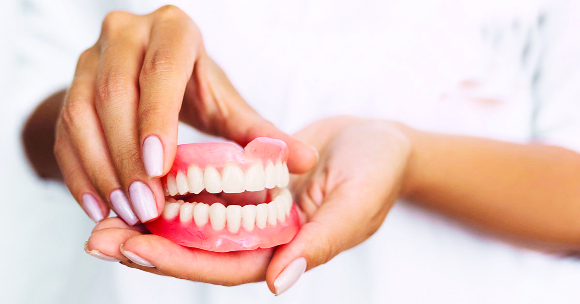Dr Munish Gupta
Aging is a universal and a normal inevitable biologic phenomenon. Oral health is an integral part of overall general health and wellbeing of an individual. Dental problems can devastate a person’s physical as well as psychological wellbeing, especially in the elderly.
Prosthodontics is a speciality which deals with the replacement of missing single, or multiple or all teeth.
Prosthodontist stands at a unique position in his service to the aging population.
January 22nd,is celebrated every year as Prosthodontist Day to spread awareness among the masses about the scope of Prosthodontic services.
As edentulism is a state of complete loss of all natural teeth. It can directly lead to functional limitation, physical, social & psychological disability and affecting the overall quality of life.Complete Denture rehabilitation remains one of the most popular & traditional treatment options for edentulous patients.
Today is Prosthodontist day
Whom to approach?
A prosthodontist is a dentist who specialises in replacement of missing teeth and have an additional training for the same. They specialise in the procedures of fabrication of complete dentures, removable partial dentures, obturators, implant prosthesis, crowns &bridges, and maxillofacial prosthesis.
Why complete dentures?
In patients with no teeth, Dentures help them eat & speak the way they did with their natural teeth. Although we cannot replace what God has given, but Complete denture is a satisfactory substitute.
Complete dentures not only help them chew, enables them to speak the way they did with their natural teeth, improves their look, gives fullness to lips and cheeks but also makes them feel more confident.So, one can lead a normal life just like before.
How to differentiate between upper and lower complete denture?
As our mouth is slightly different on the upper and lower parts of our jaw, the shape of the upper and lower denture also varies.
Upper denture: This is called maxillary complete denture and is in the form of a full plate covering the roof of the mouth with teeth facing downwards.
Lower denture: This is called mandibular complete denture and is horse-shoe shaped that rest on gums and bone tissues with teeth facing upwards.
What to expect?
* Dentures are removable prostheses. They are not embedded in the bone like natural teeth, they are placed over the ridge.
* A strange feeling in the beginning is very much normal.The habit of wearing a complete denture may take some time.
* Sore spot – One may experience sore spotswithin 24-48 hours of wearing a denture. It is not advisable to adjust the dentures by themselves as this may break or fracture the denture or even harm your mouth.
* Chewing with new denture – Learning to chew with new denture needs patience and require some practice. Chewing has to be gradual from liquid ‘ semi-soft’soft’hard. Make sure to cut the food into small pieces and then chew slowly with up and down motion and minimum sideways motion. Practice to chew on both sides of your mouth and not to bite with the front teeth. This will prevent the dentures from dislodging. Sticky foods should be avoided in the beginning.
* Speaking with new dentures-Speech may be impaired in the beginning but gets adapted fast. Practice reading aloud in front of a mirror and see the change.
* Increased Saliva -It is very normal to have increased salivary flow with new complete dentures but it decreases with time.
* Dentures are life lasting is not true. Inspiteof their durability, denture can lose their natural appearance and chewing ability with continued use.
* Properly made dentures have good retention without adhesives. But adhesives can be used during initial period for giving confidence to the patient.
* Lower denture retention is compromised compared to the upper one because the surface area of lower jaw bone is less compared to upper jaw and also because of the presence of tongue in relation to lower jaw.
* A denture will have better retention if there is adequate flow and consistency of saliva.
* A denture canbe dislodged from its position during coughing or sneezing.
* Denture should not be worn at night. This gives adequate rest to denture bearing mucosa.
Care and maintenance of Dentures:
* Dropping of denture can cause fracture or breakage of denture. So, denture should be cleaned in a half water filled wash basin to prevent accidental drop.
* When not in use denture should be kept in water filled bowl.
* Clean the dentures after every meal to avoid food deposition and staining.
* Brush the denture with detergent before wearing in the morning.
* Avoid smoking to prevent the overall well being of the denture wearing tissues.
* Bone resorbs with age. Denture may become loose and may require adjustment. A thorough examination by a Prosthodontist is advisable every 6 months.
Our elderly patients have a right to live happily and its our duty to help them!


